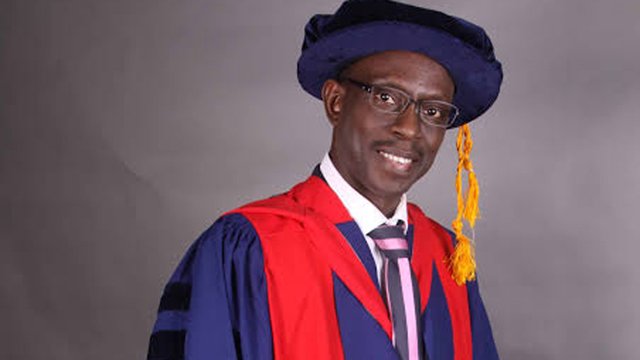One thing that can never be forgotten is that NO matter the level of philanthropy that is shown by the rich to the poor, the poverty gap in society cannot be bridged unless there is the adoption of an intergenerational contract where different generations collaborate and partner to achieve a common goal of better living standards and equitable distribution of income.
This was the postulation of the immediate past Vice-Chancellor of the Lagos State University, LASU, Prof. Olanrewaju Fagbohun, SAN, while delivering the 10th Convocation Lecture of the Osun State University, Osogbo, on Tuesday.
Fagbohun’s lecture was titled ” Towards harnessing intergenerational opportunities for inclusive growth and development in Nigeria.”
Fagbohun, who quoted the 2020 Global Multidimensional Poverty Index (July 2020) that said 84 per cent of the 1.3 billion world’s poor people live in Sub-Saharan Africa and South Asia, noted that Nigeria, as a country houses a large chunk of the figure and that the lack of economic opportunities contributes to rising in crime and insecurity.
“Intergenerational contract means people of different generations should work together to address social problems rather than have the philanthropy of the rich to the poor. Intergenerational contract enjoins collaborations and partnership of different generations towards the achievement of a common goal of better living standard and equitable income,” he said.
The Professor of Environmental Law noted that the government’s efforts to using programmes such as the Public Works Scheme, Skill Acquisition Programme, Tradermoni among others to help bridge poverty levels did not achieve the desired results because of lack of incorporation of inclusive growth into those programmes.
“Inclusive growth aims to improve living standards and share the benefits of increased prosperity more evenly across social groups,” he explained.
He added that more than often, “there is an apparent gap between promised reforms and real society outcomes.”
He blamed the development on the fact that the state has become a private profit concern of some people.
“Rather than take action that can create opportunities for all segments of the population, cartels in government and private interests create monopolies and situations that keep the status quo ante. This state of affairs pleasures them here and now while mortgaging the future of the county and her entire population,” he stated.
Fagbohun added that the Nigerian society does not lack traditional intergenerational contracts as seen in the Igbo apprenticeship system and the guild system (Esusu) in Yoruba land.
Bringing the concept down-home to current agitation in Nigeria for restructuring, Fagbohun said observing the ethic of fairness and equity in the distribution of resources and affection within the governance process would douse the tension.
“For as long as leadership either at the federal, state or local government levels continue to exhibit a lack of determination to act fairly and equitably, no amount of restructuring will be adequate to achieve the goal of nation-building.
“Conversely, if all that is contained in our constitution are the wordings of our national anthem and national pledge, and there is the sincerity of purpose to the spirit of their wordings, they are more than sufficient as root upon which a strong and virile nation could be built,” he stressed.

